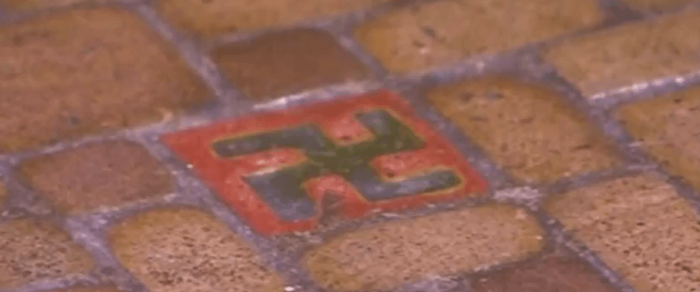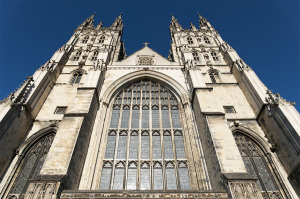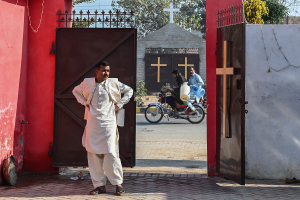Washington Church Mulling Whether to Remove Pre-Nazi Swastika Floor Tile

A church in Washington State is debating whether or not to remove a swastika image put on the floor of its sanctuary before the Second World War.
Longview Community Church's sanctuary was constructed during the 1920s, before the swastika garnered its malevolent reputation as a symbol of Nazism.
The San Francisco Gate reported Sunday that the congregation of Longview Community is not of one mind about what to do, if anything, about the imagery.
"Some members want to remove the swastika tiles, which they say is a reminder of the horrors of Nazi Germany (although the Nazi swastika is oriented differently)," reported SF Gate.

"On the other side, members do not want to strip the building of its history. The swastika tiles are original to the church, which was built in 1925, eight years before Hitler and the Nazis came to power in 1933."
This is not the first time the images have been debated. For example, last June KOIN news channel 6 did a story about the architectural controversy.
In an interview with KOIN last year, the Reverend Dr. John Williams explained that "whenever we have done any kind of construction, we have tried to mimic what existed before."
"If they're offended at the doorstep, then I don't even get a chance to say 'you know, God really loves you'," continued Rev. Dr. Williams.
"We have, sad to say, more and more younger folks who have a very, very thin veneer of world history."
Williams was alluding to the millennia-long history of the symbol, whose name derives from the Indian Sanskrit word svastika, often translated into English as "good fortune" or "well-being."
"To this day it is a sacred symbol in Hinduism, Buddhism, Jainism, and Odinism. It is a common sight on temples or houses in India or Indonesia," noted the United States Holocaust Memorial Museum's website.
"In the beginning of the twentieth century the swastika was widely used in Europe. It had numerous meanings, the most common being a symbol of good luck and auspiciousness."
Although church leadership recently approved the idea of changing the tile, many in the congregation have been critical of the decision.
Longview is still looking into getting congregational feedback, having held two town halls in which most attendees spoke against changing the tile.
"Beyond preserving the church's history, some opponents questioned the cost of replacing the tiles and wondered if the church would have to change every time someone is offended," noted the SF Gate.
"The negative pushback likely means the church probably will forgo removing the tiles. Williams expects the board to reverse its earlier decision within the next couple of months."
The Christian Post sent multiple queries to Longview Community Church, but did not receive a response by press time.





























